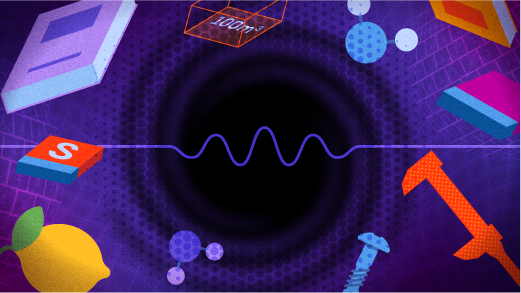What's up in
General relativity
Latest Articles
What Is a Manifold?
In the mid-19th century, Bernhard Riemann conceived of a new way to think about mathematical spaces, providing the foundation for modern geometry and physics.
Carlo Rovelli’s Radical Perspective on Reality
The theoretical physicist and best-selling author finds inspiration in politics and philosophy for rethinking space and time.
Astrophysicists Find No ‘Hair’ on Black Holes
According to Einstein’s theory of gravity, black holes have only a small handful of distinguishing characteristics. Quantum theory implies they may have more. Now an experimental search finds that any of this extra ‘hair’ has to be pretty short.
A New Geometry for Einstein’s Theory of Relativity
A team of mathematicians based in Vienna is developing tools to extend the scope of general relativity.
New Maps of the Bizarre, Chaotic Space-Time Inside Black Holes
Physicists hope that understanding the churning region near singularities might help them reconcile gravity and quantum mechanics.
The #1 Clue to Quantum Gravity Sits on the Surfaces of Black Holes
A black hole formula worked out in the 1970s remains the most concrete clue physicists have about the threads of the space-time fabric.
The Logic That Must Lie Behind a New Physics
The philosopher Karen Crowther digs into how the space-time fabric could possibly emerge from something non-spatiotemporal.
The Thought Experiments That Fray the Fabric of Space-Time
These three imagined scenarios lead many physicists to doubt that space-time is fundamental.
John Wheeler Saw the Tear in Reality
Until his dying days, the giant of 20th-century physics obsessed over the underpinnings of space and time, and how we can all share the same version of them.








